This will be a series because Utah has made a lot of interesting choices in transportation. As per usual- this is just for entertainment purposes.
Part 1 can be found here.
While we could go back to the 1800s about this topic, we are going to stick to the runup to the 2002 games and after.
2002 Games Transportation Propaganda
We’ll just jump right in with this quote from KSL. Its messaging is interesting:
“SALT LAKE CITY — Utah Transit Authority leaders called TRAX, the $312 million light-rail project, “a miracle” when they launched the system Dec. 4, 1999.
We did it without raising taxes and with a lot of exposure,” said then-UTA general manager John Inglish, according to reports from the event. “We had plenty of scrutiny throughout.
Salt Lake County voters had rejected a sales tax increase that would have helped fund the project about seven years before the project’s first 15 miles began operation, and it still had its detractors when it opened. However, the turning point came on June 16, 1995, when the International Olympic Committee named Salt Lake City host of the 2002 Winter Olympics and Paralympics.
UTA used this bid to help secure massive funding from the Federal Transit Administration, which had agreed to cover 80% of the project by 1996, the Deseret News reported at the time.”
The reason that is so interesting is because Utah loves to claim it doesn’t take much money from the federal government, and the state loves to say “it won’t be the taxpayers,” but where does all this money come from? Even the money from the federal government?
Another example of the propaganda around costs and the games, this time from the LA Times:
“For instance, security costs for the Salt Lake Games, much of it picked up by taxpayers, totaled more than $300 million.
The U.S. government provided nearly $400 million in direct funding for the 2002 Games; the state of Utah put up another $225 million. In all, the Games cost about $1.9 billion.
Some say the Olympic accounting should also include indirect costs, specifically an additional $1.1 billion in government funding allocated to highway and rail projects in and around Salt Lake that would have been done regardless of the Olympics but were accelerated because of the Games.” (as you can see from the first quote from KSL, it actually probably would not have been done as the taxpayers said no. So this is mixed messaging.”
Something strange that we noticed, most would not report the FULL COST of the 2002 games. As we all know, you can leave things out or add them in to make the outcome different. It appears that has been the case with 2002. We bring this up not just because of 2002 but let’s observe what’s happening with the 2034 games coming to Utah.
An article from KUTV points out a little gem in the contract Utah signed:
“Billions of dollars are budgeted for the 2034 SLC Olympics, but if the past is any guide, it may cost a whole lot more.
Utah’s Olympic bid estimated the core operating budget for the games at $2.8 billion with a total cost of just under $4 billion.
The proposal states that 100% of that $4 billion would be privately funded.
But, in a list of guarantees made to the Olympic committee in SLC’s bid, the proposal promises, “The State of Utah would be the principal financial guarantor through the Games Delivery Guarantee (covering any potential shortfall of the OCOG budget) . . .
That would leave taxpayers on the hook if the games are more expensive than planned.”
Do you think Utah went over budget for the 2002 games?
Well, that requires you understand the bait and switch that happened. So, let’s look at the following slide from Utah’s own presentation in 2023 about 2002:
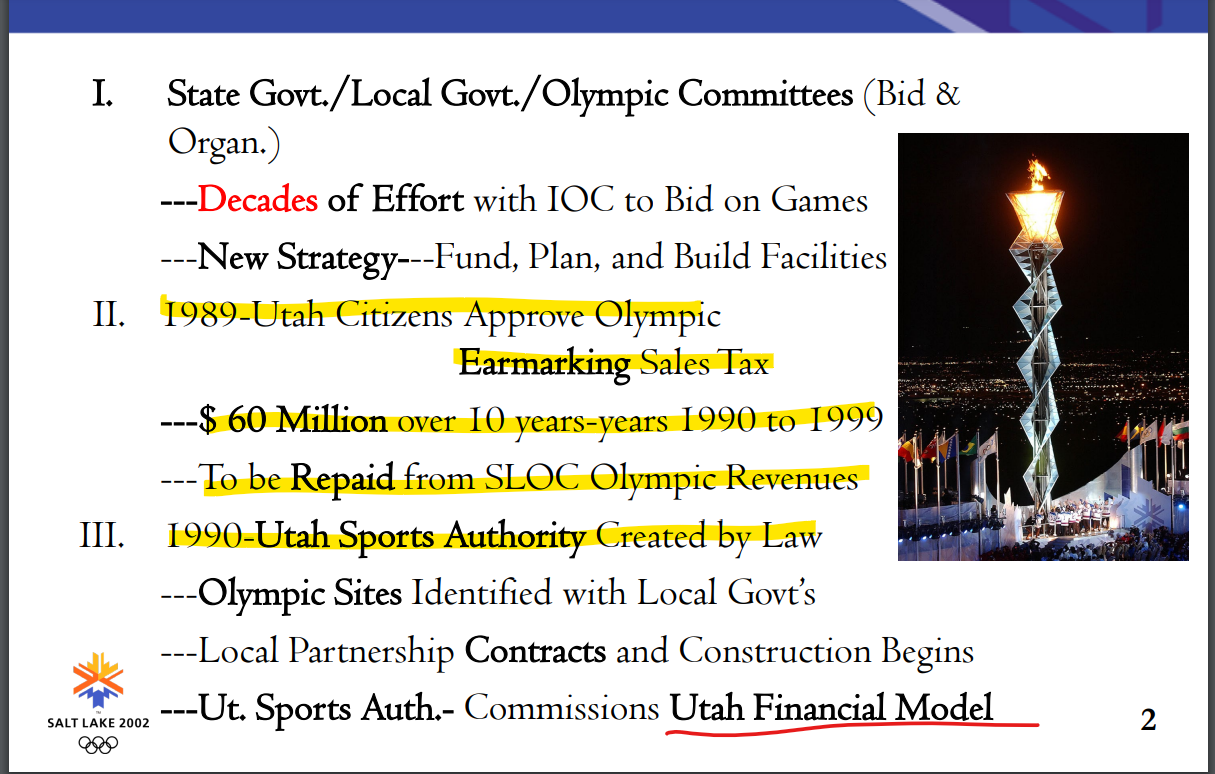
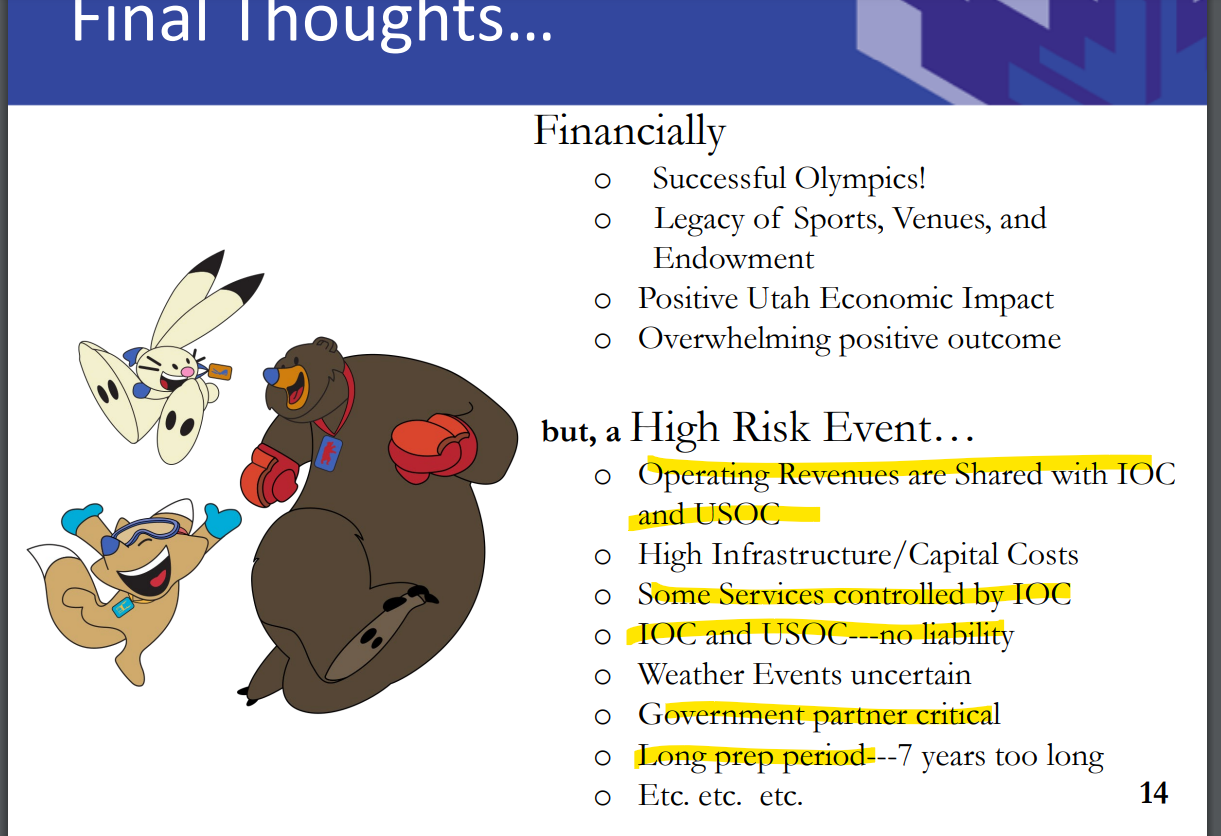
A few things:
Do those “pros” outweigh the cons?
Looks like Utahns “approved” an earmarking sales tax for a game they didn’t have yet. (Did you know it was a referendum? Makes a big difference doesn’t it!)
“Even if Utah does not get the Winter Olympics in 1998 or even in the year 2002, Tuesday’s referendum has put this state firmly on the path to becoming a major center for winter sports and for training Olympic athletes.”
How do you think the pledges held out, and the ROI worked for Utah?
Let’s look at how Utah has progressed since 2002 – Old Utah vs “New Utah”
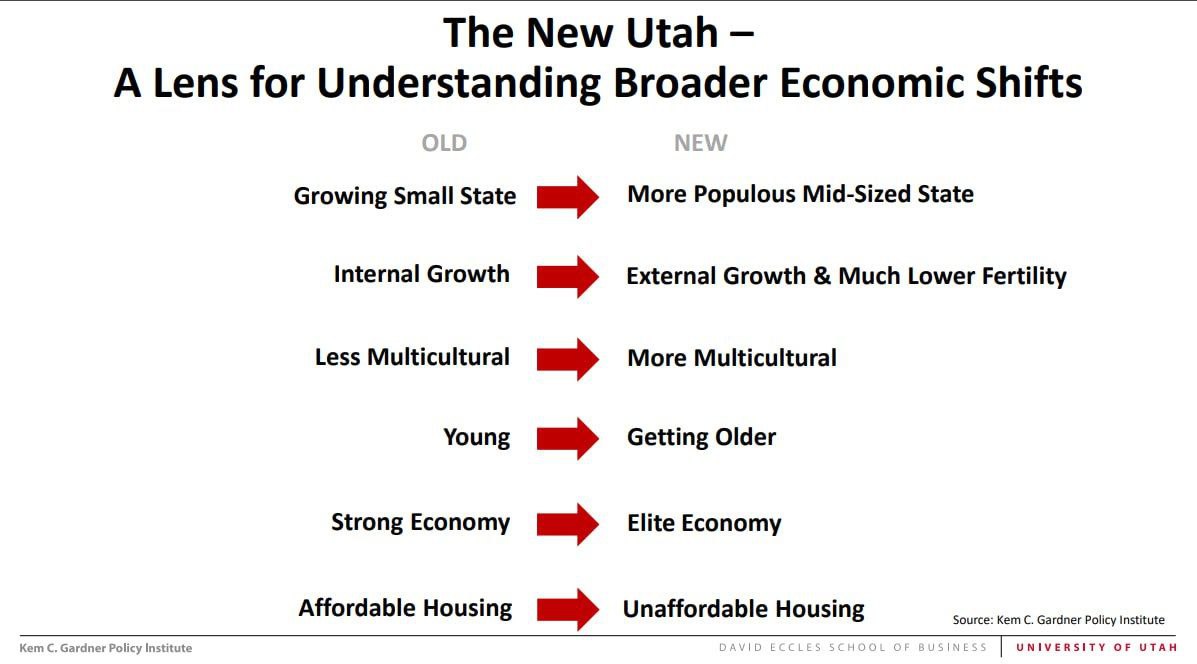
Source- Kem C. Gardner
What do you think? Was it a wise “investment?” Granted, smart growth comes into play, and other questionable policy choices, but the games kicked off a global push for Utah.
To fully comprehend just how helpful the games were please read this blog from Defending Utah.
FOLLOW THE MONEY
In this article from Fox 13 they admit the games don’t do much for Utah. It’s just a big ole’ party to display Utah to the world.
“The value of the Olympics to the state is the 10 years in advance of the Games during which there is a huge amount of back pressure that will allow you to get a lot of things done that you could never get done in their absence,” explained former Utah Governor Mike Leavitt at a panel discussion last week.”
So, is there a sole economic reason to bring one of the biggest events on the planet to the Beehive State?
“There is not really a big economic impact from hosting a sporting event,” explained Southern Utah University professor David Berri. “The way to understand hosting the Olympics is what you’re doing is you’re throwing a big giant party and you’re inviting the world to come to your city and have this party with you.”
And just to really hit it home:
“And realistically, this is not something that pays for itself, that’s probably not gonna happen,” Berri said.”
So, we don’t get a REAL economic movement, but we do get to “feel good,” keep some venues, and put on display for the world.
Has all the “growth” been worth it? Do you like the fact that Utah has lost its rural/family centered culture? Do you enjoy housing costs skyrocketing? Do you like what they have put in place and are continuing to put in place to push a global agenda? Do you like that Utah is the only state outside of New York to host the United Nations, and now has the UN nation flags downtown, just like New York? Do you like that Utah is being turned into California? Are we a western global headquarters? “Next stop the world” to quote the World Trade Center Utah. We digress, and you get the point.
Let’s look at these costs again from a different point of view, shall we? Shoutout to Sports Illustrated, of all outlets, for telling the TRUTH, in our humble opinion!
The title really gets right to the point: “Snow Job Thanks to Utah politicians and the 2002 Olympics, a blizzard of federal money–a stunning $1.5 billion–has fallen on the state, enriching some already wealthy businessmen”
“Two months before the Games, Utah has already walked away with the gold while setting records in four categories:
Total federal handouts. The $1.5 billion in taxpayer dollars that Congress is pouring into Utah is 1 1/2 times the amount spent by lawmakers to support all seven Olympic Games held in the U.S. since 1904—combined. In inflation-adjusted dollars.
Enrichment of private interests. For the first time, private enterprises–primarily ski resorts and real estate developments–stand to derive significant long-term benefits from Games-driven congressional giveaways.
Most government entities tapped for cash. With all the skill, grace and precision of a hockey team on a power play, Utah’s five-member congressional delegation has used the Olympics to drain money from an unprecedented number of federal departments, agencies and offices–some three dozen in all, from the Office of National Drug Control Policy to the Agriculture Department.
Most U.S. tax dollars per athlete. Federal spending for the Salt Lake City Games will average $625,000 for each of the 2,400 athletes who will compete. (Not a penny of it will go to the athletes.) That’s a 996% increase from the $57,000 average for the 1996 Atlanta Olympics. It’s a staggering 5,582% jump from the $11,000 average for the 1984 Summer Games in Los Angeles. Again, these are inflation-adjusted dollars. (If the minimum wage had gone up at the same pace since ’84, the average
McDonald’s hamburger flipper today would earn $190 an hour.)”
WOW! Does that smell like something to you? It sure does to us. Oh and lest you think Utah just messed over their own population, let us help you on that:
“Actually, they aren’t. Cities–not countries–bid for the Olympics, though you wouldn’t know it from the bill passed along to U.S. taxpayers. The heavy dependence on federal funds began with the Atlanta Games, for which Congress kicked in $610 million, eight times the $75 million allocated for the L.A. Olympics. Salt Lake City has taken the federal funding to a new level of excess. What, exactly, are your tax dollars buying? Here’s a sampling.”
Aside from U.S. taxpayers holding the burdon of cost, there’s something else that caught our attention.
They prepped extra security costs BEFORE 9/11, almost like they thought they need more for some strange reason.
“Security is costing you about $240 million. Given the events of Sept. 11, few people would quibble with so large an outlay even though it’s a 150% increase over the federal tab for safeguarding the Atlanta Games, which had twice as many venues and four times as many athletes to protect. What’s surprising is that $200 million of this was approved before Sept. 11. Less than 24 hours before the attacks, in fact, Romney was in Washington seeking $12.7 million to cover a portion of salaries and expenses for Utah police who will be involved in Games security.”
So to break this down for you:
“A 2001 report by the U.S. General Accounting Office found the federal government spent $1.9 billion in direct costs to the 2002 Winter Olympics and another $1.1 billion in indirect costs like highways. Those figures were before the Sept. 11 attacks increased security spending.” source
Plus the $342 million in security and Utah spent $3.342 billion dollars on the games in 2002. Reminder that the 2034 budget is $4 billion and the Utah taxpayers are on the hook for anything over it.
Worse however is what Murray says in this article:
“For 2034, Utah politicians may have to make trades in Congress…“
What would those trades be? Land, money, water, the GSL, military items? What, what does Utah trade so we can get these games that most people we know don’t want.
And here we come full circle- back to transportation:
“That Utah officials used the Games to extract transportation dollars from Washington was widely reported in the state. As the Deseret News noted on March 9, 1997, “Olympic organizers said there’s nothing wrong with telling Congress that every project on Utah’s $4.3 billion list [of requested funding for all kinds of projects] is needed for the Winter Games, even though their own must-do projects on that list only total $55 million.”
We could spend all day just on this article alone. It’s excellent you should read it.
Now, keep in mind that according to the KUTV article (Title- 2034 agreement leaves Utah taxpayers on the hook if games go over budget) we mentioned earlier, they clarified:
“Salt Lake’s 2002 games did better than most, spending 24% more than was budgeted.”
So, if Utah goes over budget, like last time, are the taxpayers on the hook? Are we understanding the 2034 agreement correctly? The budget is supposedly $4 billion. If we went over by 24% that could be $960 million dollars if we understand their math correctly.
Before we even dig into transportation further it is our humble opinion that proceeding forward in an economic downturn, a financial reset of some sort (digital money push/force), is at best ignorant, and at worst negligent bordering on fraud. The legislature needs to answer why they would put Utah in this precarious situation at such a volatile time globally.
SMART UTAH
Please make sure you read our first blog on the Olympics and transportation here to catch up on even more financial information and recent transportation links.
Following up to the above blog: Utah, somehow got itself entangled in a desire to become “the first truly smart state in the nation.” Why the state thought this was a great idea appears to be from Mike Leavitt’s Smart Utah/States push. If you need more information about smart states, and why that is bad, please go read the entire 7 part series here and a short breakdown here.
Below is a screenshot of the FEDERAL plan with Utah and UDOT to turn us into a test bed for this smart transportation infrastructure. Did you consent to this? Did you even know about it?

The SLTrib did an article discussing Cox family business (broadband and Fiber) interesting financial increase:
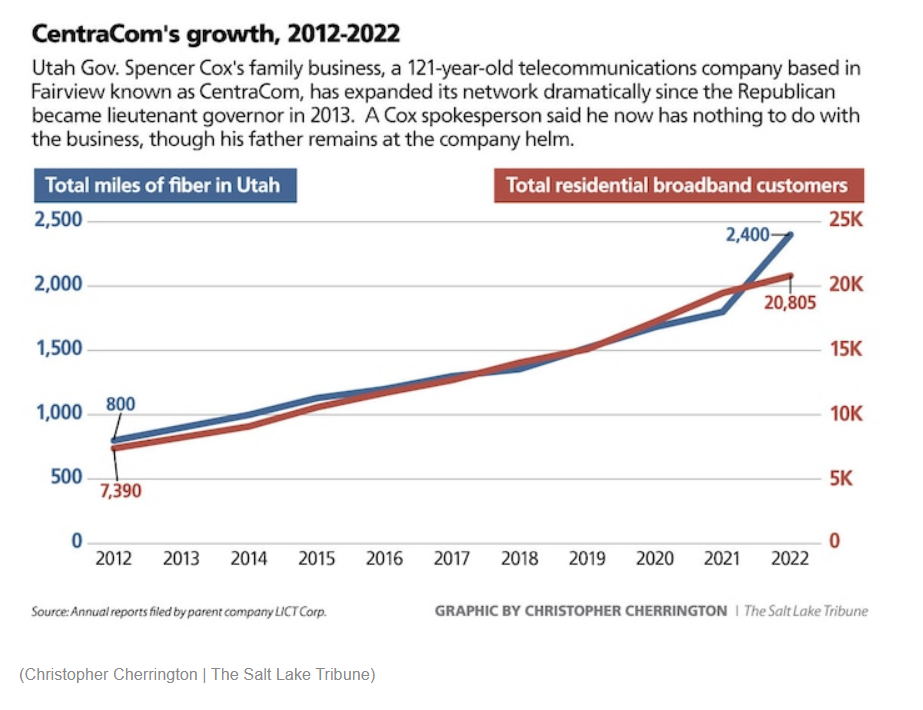
Why are we bringing that up? Well, the above mentioned federal agreement with UDOT and Utah mentions:
“The significant investment in fiber connectivity statewide made over the past several years puts Utah in a unique position to take the ideas behind Smart Cities to the next level and deploy the first Smart State in the nation. This program will continue to provide connectivity benefits to citizens around the entire state—urban and rural. Utah Connected leverages significant previous investment enhancing the benefits Utah already enjoys, including the State’s extensive fiber optic network, statewide signal interconnectivity, existing performance management, a soon-to-be operational Connected Vehicle corridor — also a first in the nation — and road weather and active traffic management field equipment. State-wide probe data from a third party, in the final stages of procurement as of this submission, will be used to support the deployment of the Utah Connected program. Our support from the State Legislature is considerable and consistent, and Utah is home to the “Silicon Slopes” program (https://siliconslopes.com), welcoming software companies throughout the nation to spur innovation and incubate new ideas.
UDOT brings strong leadership and political support, and a significant existing foundation of ITS deployment
Beyond foundational technology, we bring a strong and cooperative partnership between all levels of government and modes of travel. UDOT leads the nation in the collaboration of a common traffic signal management system across the state with over 89% of state, county, and city signals interconnected including Automated Traffic Signal Performance Metrics (ATSPM) capabilities. This unique arrangement makes collaboration easy. UDOT worked hand in glove with the Utah Transit Authority (UTA) in the development of a Concept of Operations for an Integrated Corridor Management (ICM) system. That ConOps includes managed lanes, heavy rail, light rail, and bus modes of travel, along with the critical traveler information channels to disseminate information to those who need it. Our Connected Vehicles program is implementing the first Dedicated Short Range Communication (DSRC) corridor for operational use, providing UTA with smart transit signal priority (TSP) capabilities. No place else brings this combination of infrastructure, relationships, functionality, and innovative approaches. All of these together allows Utah to lead the nation in advanced transportation technologies.”
Hmmm, wonder where the fiber lines came from? We’d love to hear your thoughts on who this/these could be.
Now, please remember that SMART is basically surveillance. It’s monitoring and placing a value or qualifying identity on all data. In the above screenshot, and on that federal website they talk about information systems and data collection etc. Let’s look at what those may be:
- RIDEUTAH- Innovative Mobility- This is out of control surveillance but one of the most disturbing parts is in the 2nd screenshot, where they discuss tracking people’s behavior. They were listening to conversations and recording them- did the people involved know that? Another very alarming part about all of this is it’s autonomous and can be accessed remotely. What happens if a hacker gets ahold of remote autonomous transportation? Buses, trucks, trains, cars? What if all your “private” conversations are recorded and kept somewhere? This is big brother on a scale we doubt any Utahn can actually comprehend.
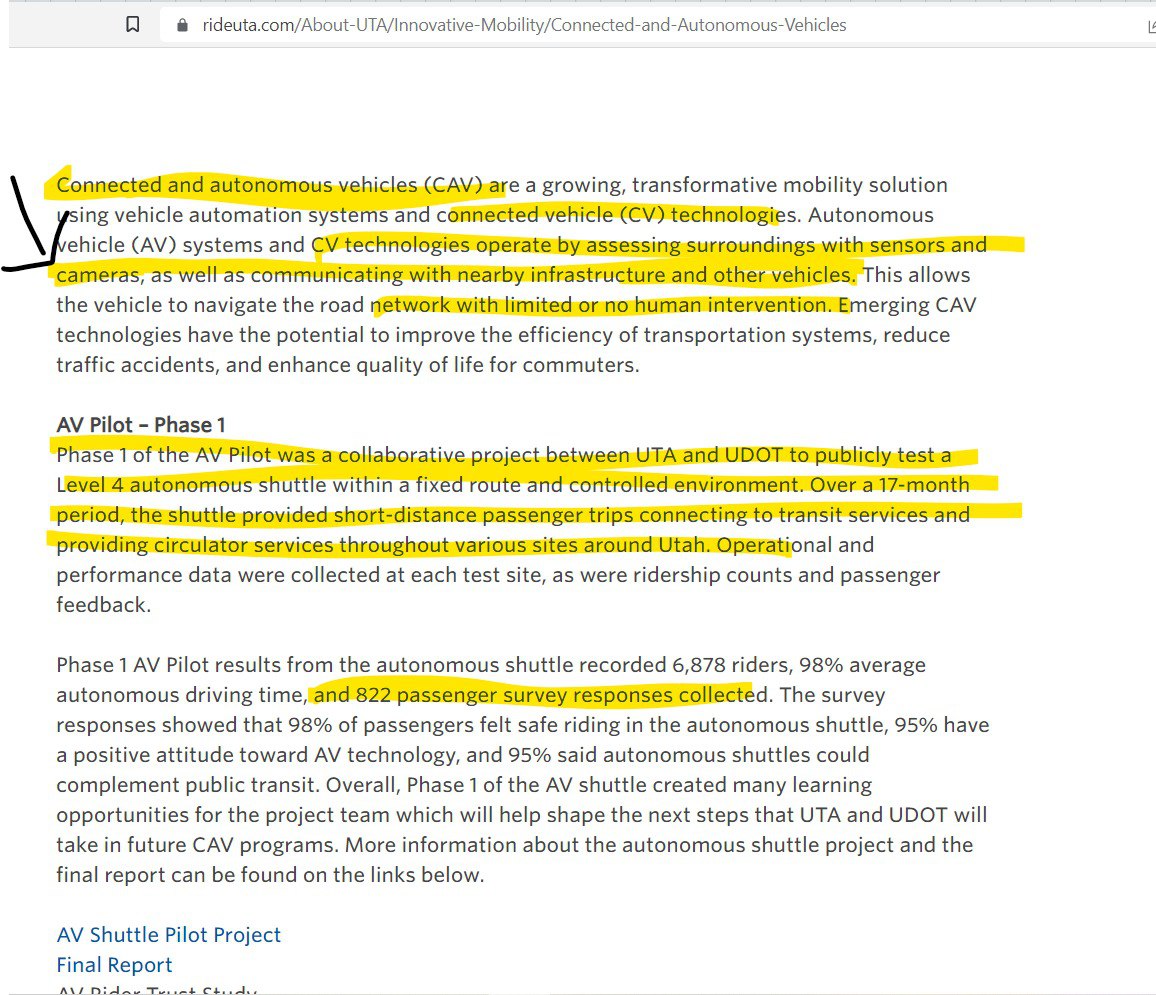
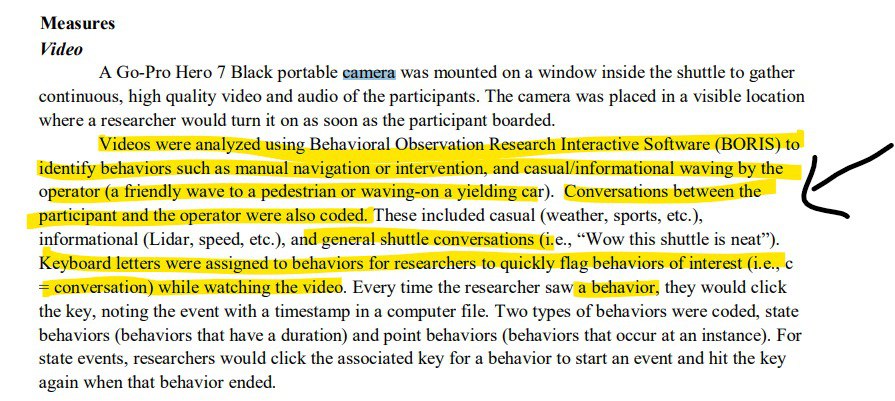

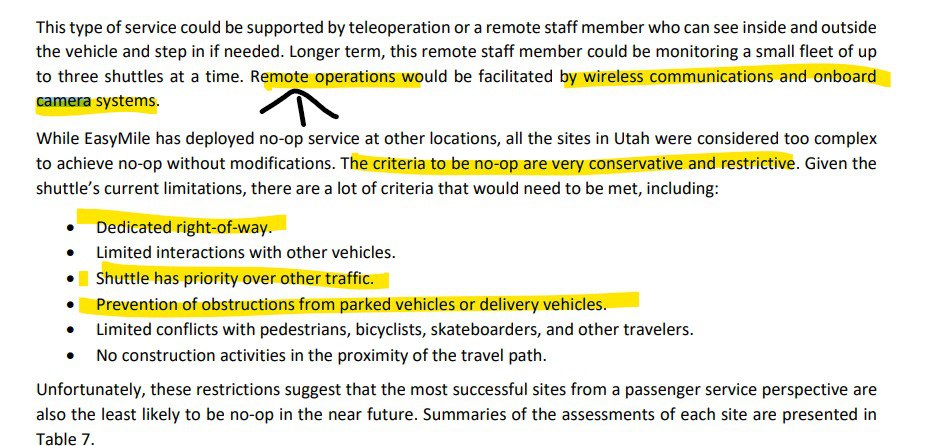
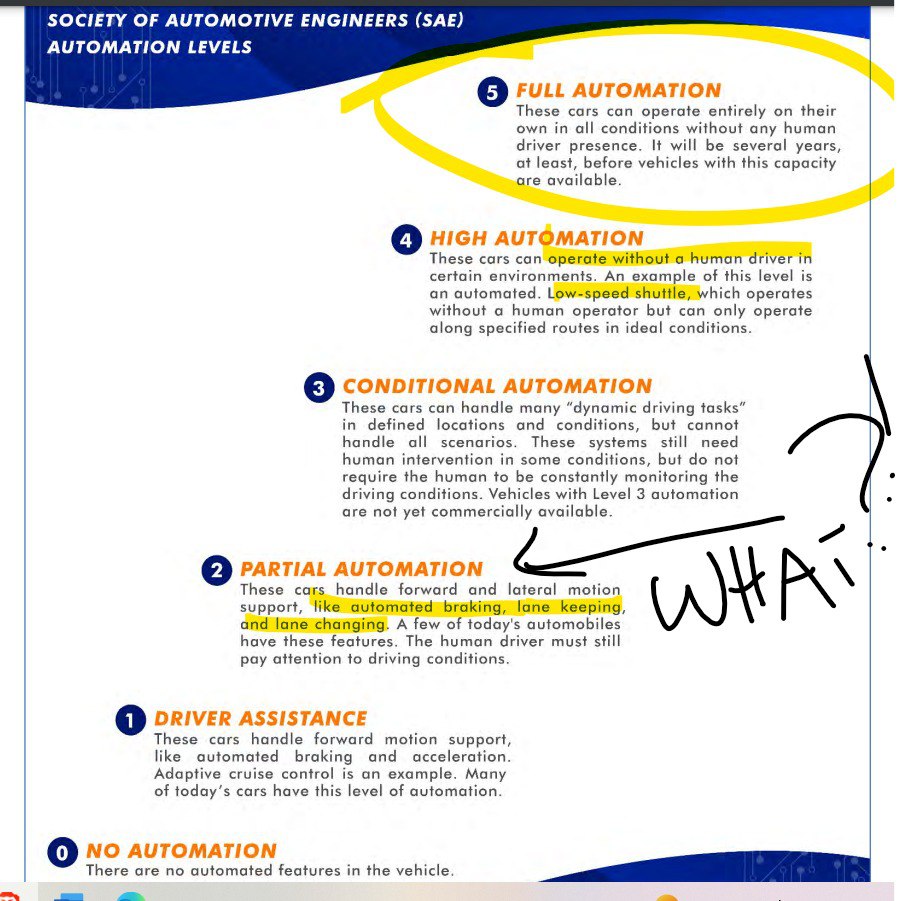
- Here we have the new webpage for Smart Utah (transportation). Utah has done most of the phases set out in the one from 2017 we mentioned earlier. Notice what this new one says: Vehicle to everything- a system that allows vehicles to share and receive real time information with other vehicles to pedestrian, communication, vehicles to infrastructure communication, traffic management and road sensors. This is communist China on warp speed. This is disgusting IOHO, are your 1st, 4th, and 5th amendment rights being violated. Why this has been allowed to progress unchecked is appalling.

Worse, that our very own Burgess Owens (House rep federal) would actually present on this madness in D.C. as a good thing, something to copy and spread, and to support the games coming here in 2034. It’s shocking that anyone could or would be on board with this.
We’ll wrap this one up here because part 3 is going to focus on certain projects and what their end goal is. Utahns need to start listening to ALL transportation meetings, both general and interim. They need to get engaged immediately because what they have done is abhorrent in our opinio

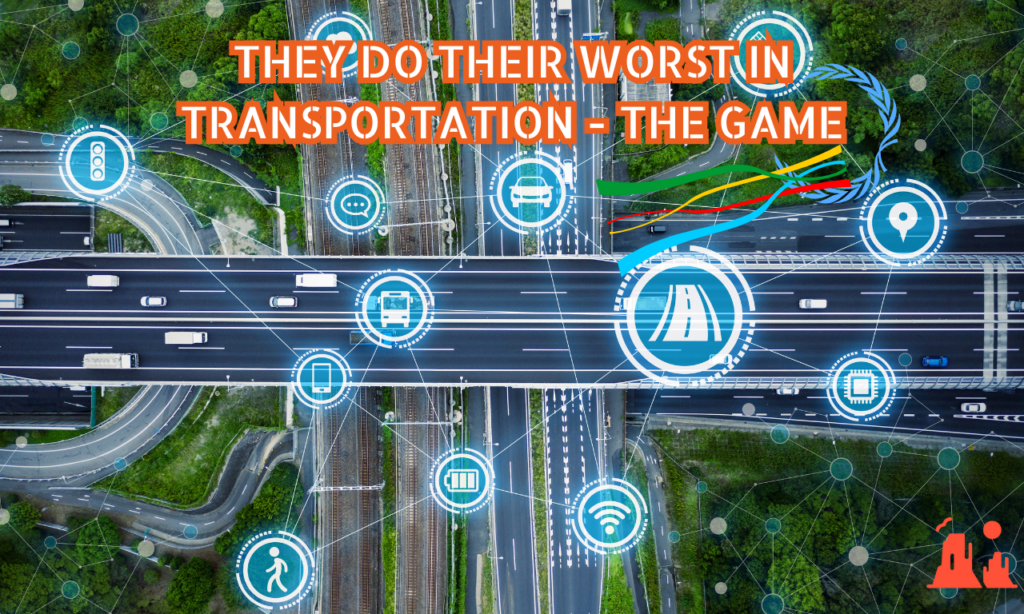
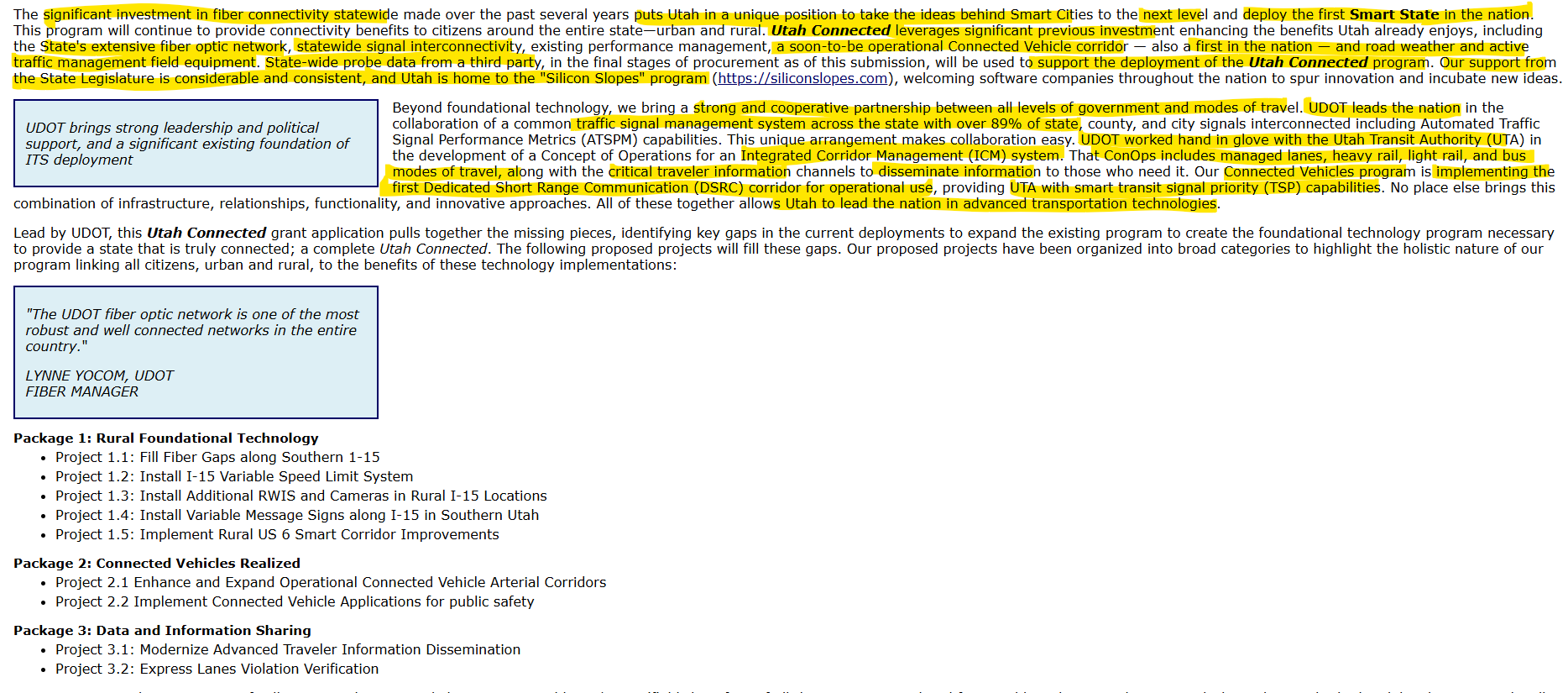
One Response